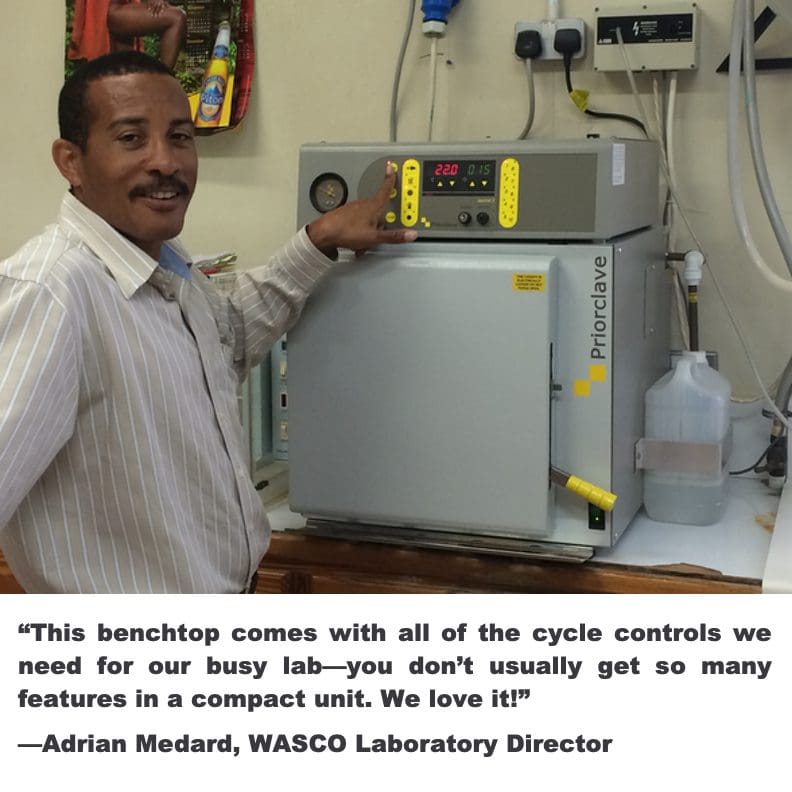Building Technical Capacity to Support Caribbean Food Security & Sustainability
By: Priorclave
Category: Lab Autoclaves
In early July, US Secretary of State Anthony Blinken was in the Caribbean, visiting Trinidad and Tobago and Guyana to discuss key regional issues, including food security and sustainability. This visit came almost exactly one year after President Biden announced $28 million in U.S. government aid would flow to the region, with a special focus on food security. Just prior to Blinken’s recent visit, the US State Department noted that “the Caribbean is experiencing the highest spike in food prices in a generation.”
Trinidad and Tobago and Guyana are two of the four original signatories to the fifteen-member CARICOM. They remain leaders in the regional development, especially in biotech and agriculture. Increasing technical capacity is vital to increasing their ability to meet food and healthcare needs locally. At their last Agri-Investment Forum & Expo, Guyana recommitted to a goal of reducing regional food imports by 25%. The Caribbean currently spends roughly $6 billion USD on food imports each year. Nevertheless, 67.5% of the population suffers moderate or severe food insecurity. Guyana’s President Irfaan Ali recently announced the creation of a regional Agri Tech Campus in Guyana. This joint project with India and the Bangalore Bio-Innovation Centre aims to help address regional food security issues by cultivating local biotech talent in the Caribbean.
All of this dovetails with the Caribbean Zero Hunger Plan, a joint venture by the United States and CARICOM. This initiative seeks to promote food and nutrition security and eradicate hunger in the Caribbean in the next several years.
“Ambitious goals,” says Brian A. Nichols, Assistant Secretary of State for Western Hemisphere Affairs at the United States Department of State, “that the United States would like to assist with to address the region’s needs.”
Supporting the Global South in Reaching their Goals for Food Autonomy
For decades, Priorclave has enthusiastically supported research throughout the Global South, with many autoclave installations across Southeast Asia, Africa Latin America, and the Caribbean. For example, WASCO’s St. Lucia water quality lab has relied on Priorclave autoclaves and support for years.

According to Priorclave North America CEO Barbra Wells, this enthusiasm is a natural outgrowth of Priorclave’s long-standing commitment to global sustainability. “Having talent and tools as close as possible to the communities who will benefit from them is vital to global sustainability.”
PNA remains a leading global supplier of reliable, cost-effective research-grade autoclaves, appropriate to a wide range of labs in diverse settings. More importantly, Priorclave supports every one of their autoclaves and users with a network of local distributors and factory-trained authorised service agents.
“Ongoing support,” Wells adds, “including lifetime free technical support on all our autoclaves, is the key. This ensures that labs can keep doing their important work, increasing access to food and medicine in their region. That, in turn, is what will tip the scales toward some level of environmental justice. During a recent trade show in Germany I met with members of the Department for International Trade—British High Commission. They connected me with a new prospective representative in Trinidad, which was really exciting. Any time we can bring service and support closer to our end users, we will.”

